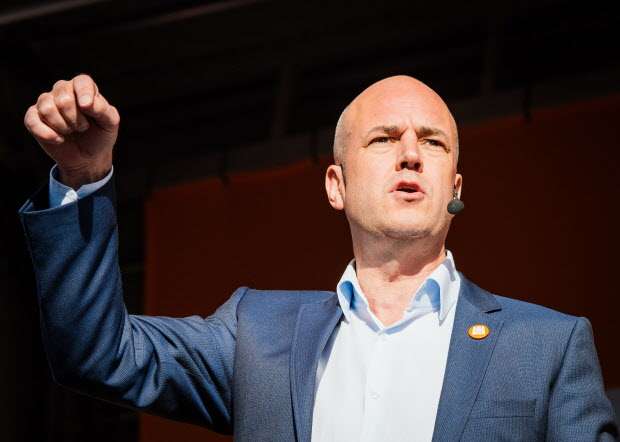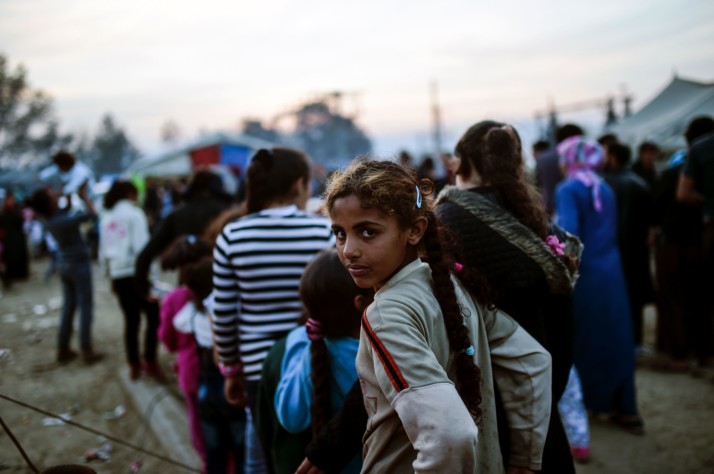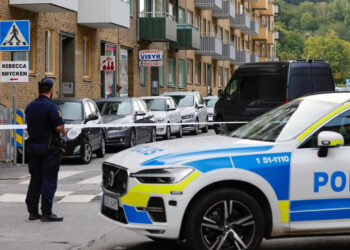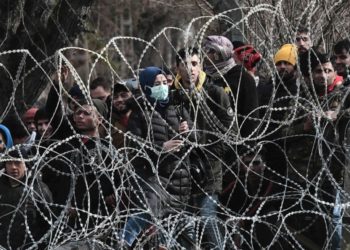“The right of asylum must be safeguarded in Sweden, in Europe, and internationally.” This was Swedish Prime Minister Stefan Lofven’s main positive programmatic message on refugees and asylum when he delivered his Statement of Government in January. The Riksdag had just re-elected him.

The leader of the Social Democratic Party also added that “those with grounds for protection must rapidly become a part of society, and those without such grounds must return promptly.”
In the eyes of many Swedes, this is exactly where the government has so far delivered too little.
Unaccompanied Minors
It is one particular group that Sweden has struggled with ever since the 2015 European “refugee crisis.” That year, over 160,000 people came to Sweden and applied for asylum. About 35,000 of them were registered as “unaccompanied minors,” children and youth younger than 18 traveling without parents or legal guardians. And within this group, a large majority, around 23,500, had fled from Afghanistan. They had managed to cross many borders until they finally arrived in Sweden.
If at all, only piecemeal solutions have been found for this particular group. Civil society has called for a comprehensive regularization or amnesty, but policymakers have not had the courage to take such steps.
Instead, Sweden now has a situation where some young Afghans have been given protection while others only have precarious, temporary permits. Many have no legal status at all or have left Sweden for other E.U. countries because they feared deportation. Some have been deported to Afghanistan.
How has Sweden ended up in this confusion?
Sweden’s Asylum Laws
Back in autumn 2015, the Swedish authorities were overwhelmed by the unprecedented number of refugee arrivals. The examination of asylum claims was paused to make capacities available to register and accommodate the new arrivals. The Afghan youths were a particularly difficult group to deal with as asylum applicants that are considered under-age are entitled to child-adequate support and care.
Then, a combination of Swedish and European measures to reduce the number of incoming asylum seekers kicked in. The E.U. struck a controversial refugee deal with Turkey, and Sweden temporarily refused to let anyone without identity documents cross the Swedish border from Denmark. Sweden also changed its asylum laws, introducing temporary (instead of permanent) residence permits, excluding large groups from the right to be joined by family members and canceling certain types of protection on humanitarian grounds.
Last year, Sweden recorded its lowest asylum seeker intake since 2005. But the young Afghans that came in 2015 are still a challenge.
Delayed Decisions
As the examination of their asylum claims was delayed, many did not receive an asylum decision until two years after their arrival, if not longer. By then, they were often not considered minors any more but treated as adults. In addition, the initially stated age of many young Afghans was adjusted upwards due to a new, controversial age assessment method.
While unaccompanied children are usually given at least a temporary right to stay, single male adults from Afghanistan are in most cases rejected, hence the long waiting times and the age revisions had a major impact. That the Afghan youths were now already attending Swedish schools, making friends, and integrating into society did not matter for their asylum cases. Sweden has currently one of Europe’s lowest protection rates for Afghan asylum claimants.

Not surprisingly, human rights groups and parts of civil society saw this tragedy and put pressure on the government to find a humanitarian solution and let the Afghans stay. Not least, many private volunteers who had enrolled as host families or legal guardians protested negative asylum decisions, the official assessment of the security situation in Afghanistan, and the medical age assessment practices. These volunteers had once followed a famous appeal by former Conservative Prime Minister Fredrik Reinfeldt, who in 2014 encouraged Swedes to “open their hearts” and accept refugees. Many indeed opened their hearts, and now they suffered as they saw their Afghan foster youths threatened by deportation.
Partial Amnesty
In June last year, the red-green government, supported by the Centre Party and the Left Party, adopted a temporary law that gave a limited group of unaccompanied youths, who had received expulsion orders, the possibility to remain in Sweden and study at upper secondary schools.
This partial “amnesty” was supposed to regularize the situation of several thousand Afghan youths. However, they needed to fulfill strict conditions. Among other requirements, only those that had applied for asylum before end-November 2015 and had been waiting for a decision for at least 15 months were entitled to stay. When the temporary regularization expired, over 12,000 individuals had applied, but only about half of them been granted a permit.
The situation of all those that did not qualify is difficult to grasp. Some are in detention or have already been returned to Afghanistan against their will. Others are likely still in Sweden, hiding from the authorities. Still others, perhaps a thousand, or more, have traveled to France, Italy, or Germany. Whether they will have better chances to receive protection there is unclear. According to the European Union’s Dublin regulation, asylum may only be sought in one country, which means that they can be sent back to Sweden. Sweden’s inability to solve the situation means that young Swedish-speaking Afghans are now being pushed around in Europe.
Meanwhile, even those that got a right to stay and study at upper-secondary schools are not out of trouble. Temporary permits granted under the partial “amnesty” can only be extended if the applicants actively participate in their studies, and once they have finished school, they must quickly find a job to qualify as labor migrants. If they don’t, they risk ending up with expulsion orders again.
Polarizing Debate
As a result, Sweden has still not fully come to terms with the exceptional migratory situation it experienced years ago. If nothing happens soon, there will be many more media reports about the precarious legal and social situation of the young Afghans it once admitted, and about the fate of those that were forced to leave.
Controversial debates between those who speak of “young adult men without protection grounds” and those who try to help will also continue. Few policy issues have polarized the public discourse as much as the unaccompanied Afghans.
Politicians might eventually regret that, instead of passing a comprehensive amnesty to solve the situation humanely once and for all, they only committed to at best half-hearted measures. Confronted with what they see as an increasingly immigrant-skeptical public opinion, many politicians appear to lack understanding and compassion, which ultimately questions the widespread Swedish self-perception as a progressive, humanitarian society.
Instead of taking to pragmatism and leaving the asylum crisis of 2015 behind, they prolong tensions and suffering.
Disclaimer: The views and opinions expressed here are those of the author and do not necessarily reflect the editorial position of The Globe Post.




















